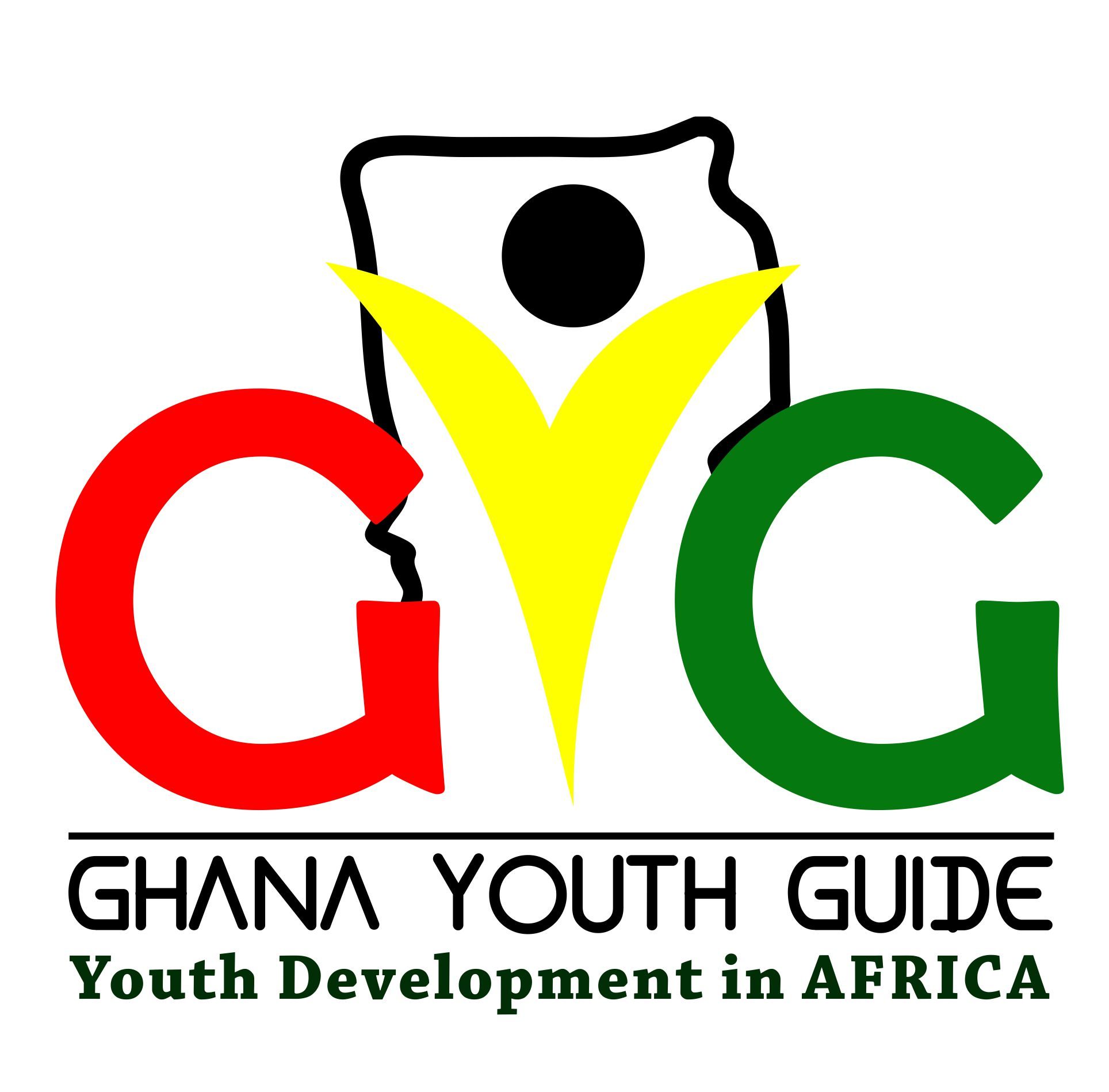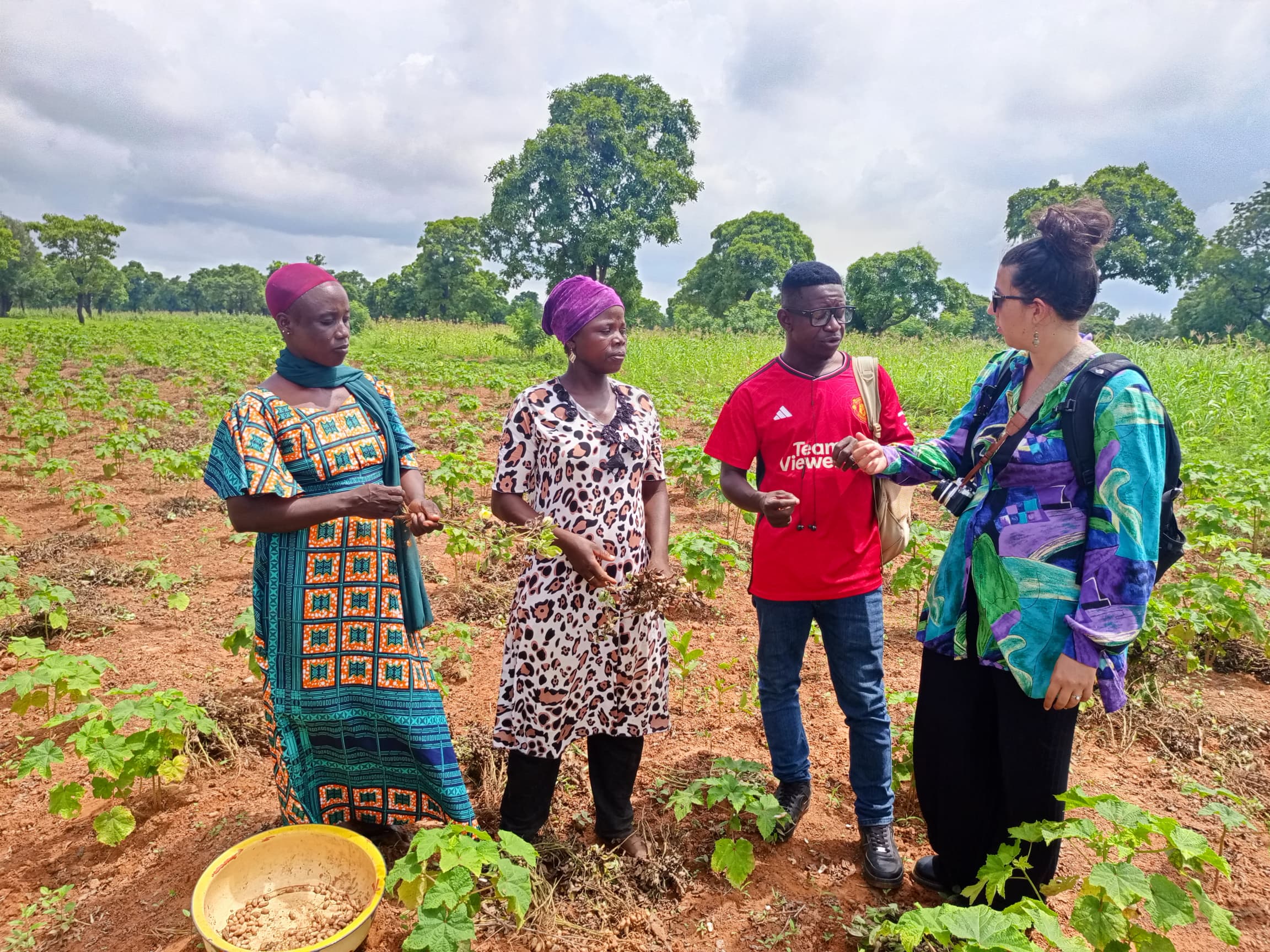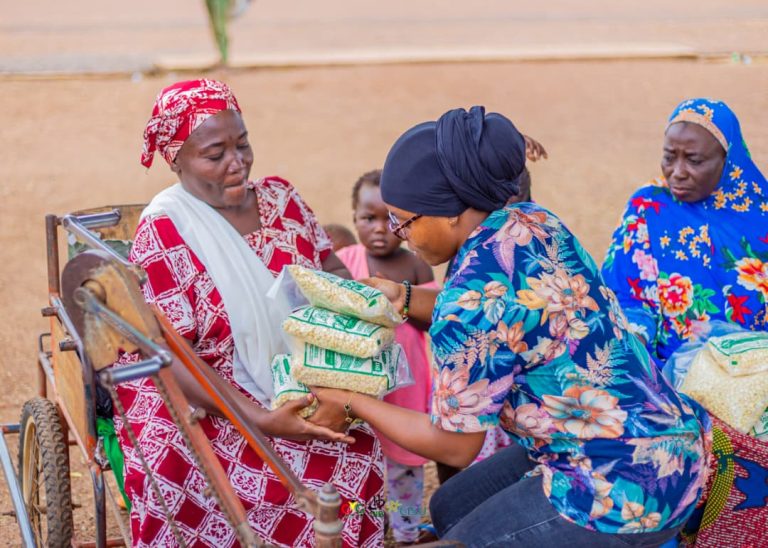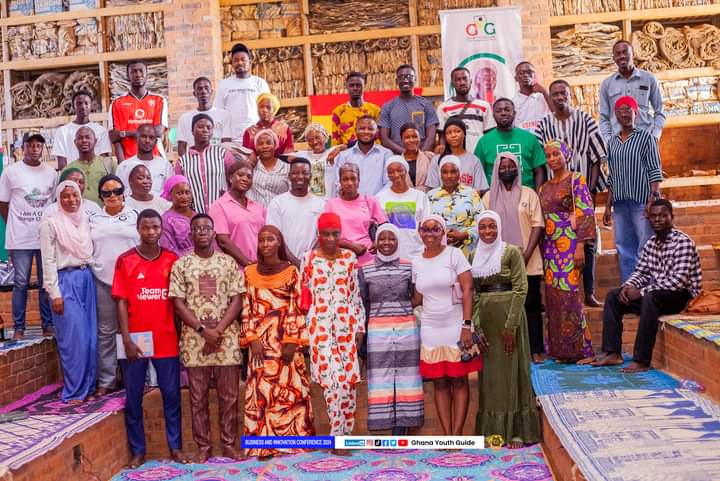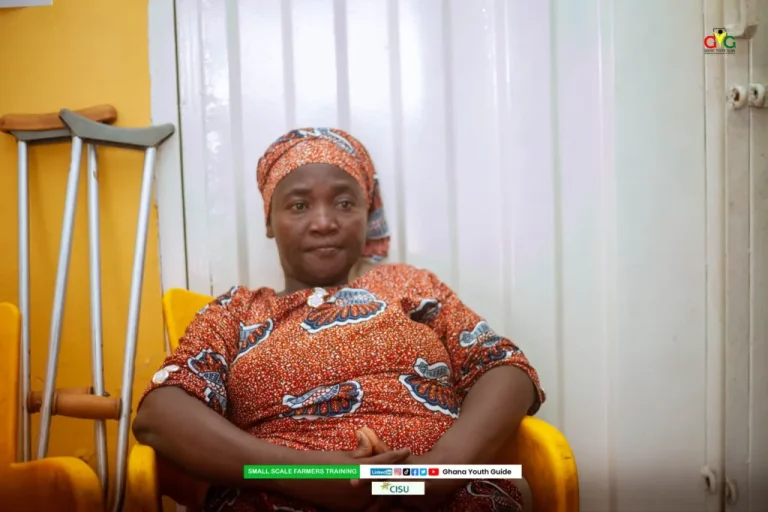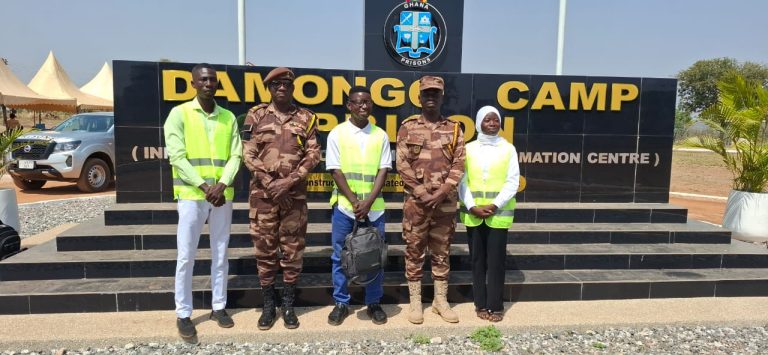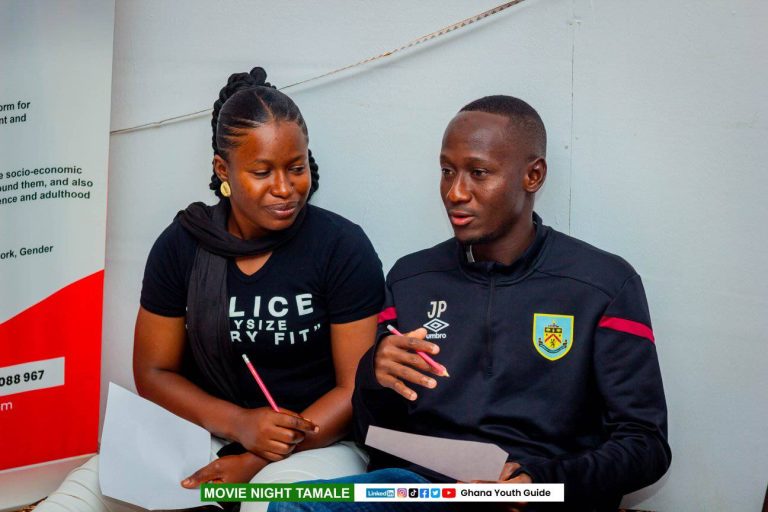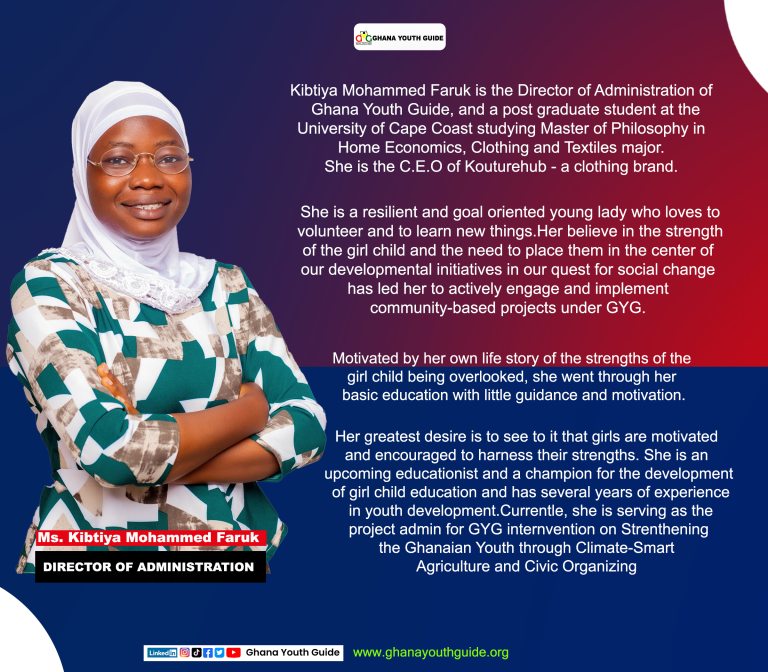Final Narrative Report – GYG Strengthening Ghanaian Youth Through – Climate Smart Agriculture
The intervention on Strengthening Ghanaian Youth – through Climate Smart Agriculture and Civic Organizing (SGY-CSA) has built the capacity of 50 young small-scale farmers in Tolon and Savelugu districts in Northern Ghana through training and capacity building on climate-smart agricultural practices. After the intervention more women had access to farmland than before, and the gender-based social barriers that exclude women from land tenure rights have been highlighted through advocacy efforts.
The PWDs who participated in the project’s activities increased their sense of empowerment in relation to farming, thanks to their active participation in the training. New farming techniques were disseminated through the training and adopted by the small-scale farmers in their fields. The intervention has also contributed to increase the knowledge of 5 GYG staff and 10 volunteers on CSA, strengthening their capacity to act as a hub for climate action and civic organizing in Northern Ghana. Moreover, through the implementation phase GYG established relevant relationships with local organizations and built a strong tie with DIB as its Danish partner.
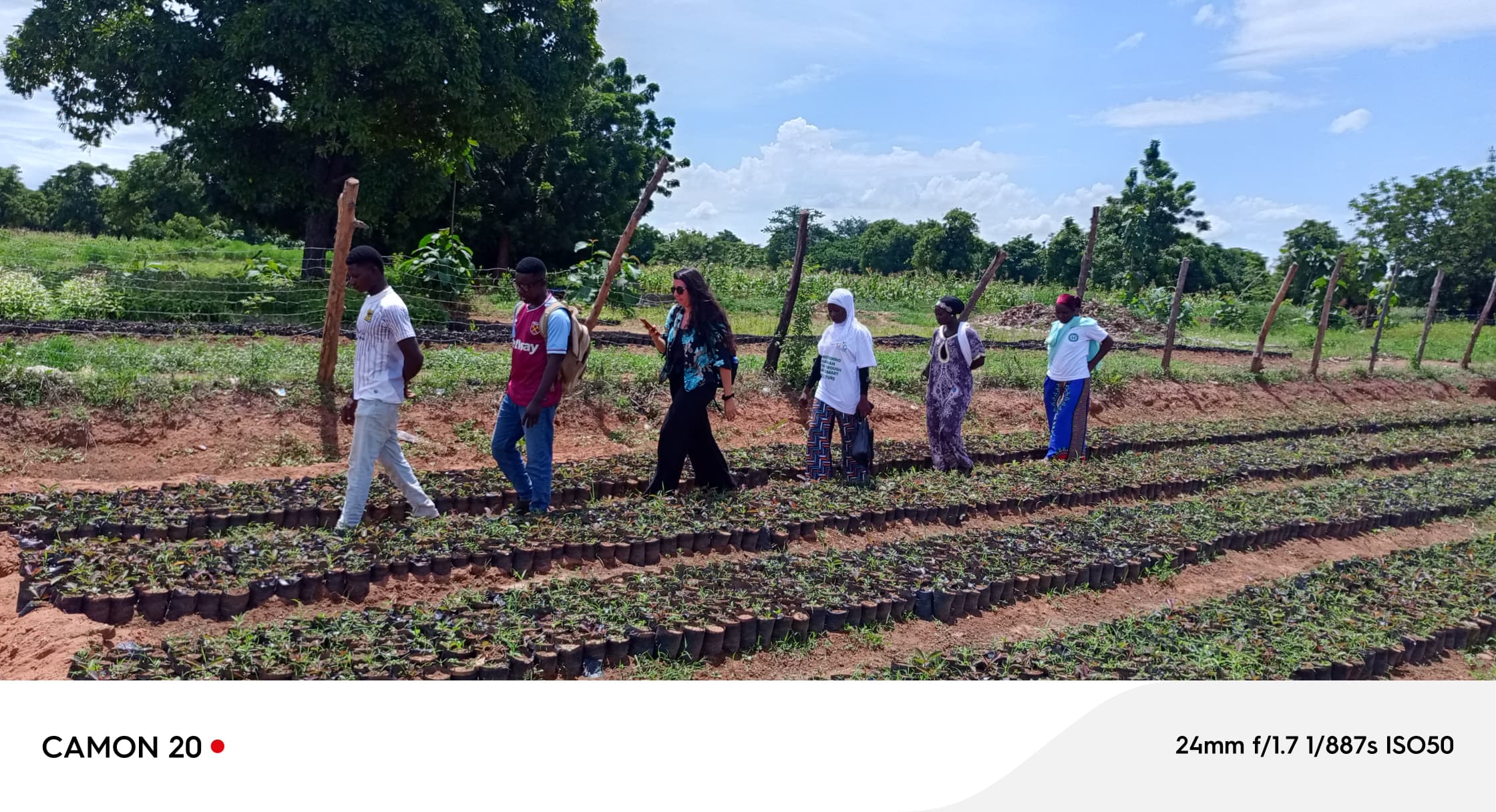
Conducting several events in the districts, and using a radio interactive program to foster communication about the project, proved to be successful to create engagement among the local stakeholders and to raise awareness in relation to crucial themes like climate change and social discrimination. In particular, the acceptance and support of local stakeholders like traditional leaders and local authorities, was a very significant milestone. The Project Launch served as a venue to network with relevant stakeholders and to showcase the importance of CSA for the local context.
Thanks to the entry meetings and to the subsequent follow-up meetings, the decision to have male farmers leave their fields to female farmers to cultivate vegetables in the dry season was reached. Male farmers have other jobs that occupy them during the dry season, while female farmer’s main source of income is agriculture. On top of that, the fields worked by the female farmers are further away from supplies of water, which during the dry season makes it impossible to cultivate. This crucial agreement was reached thanks to the advocacy efforts of GYG and female farmers, showing the importance of communal gatherings during the project’s implementation. Finally, thanks to the networking efforts, the Ghana Forestry Commission division donated 2,000 seedlings (trees) to GYG, which were equally distributed among the target communities.
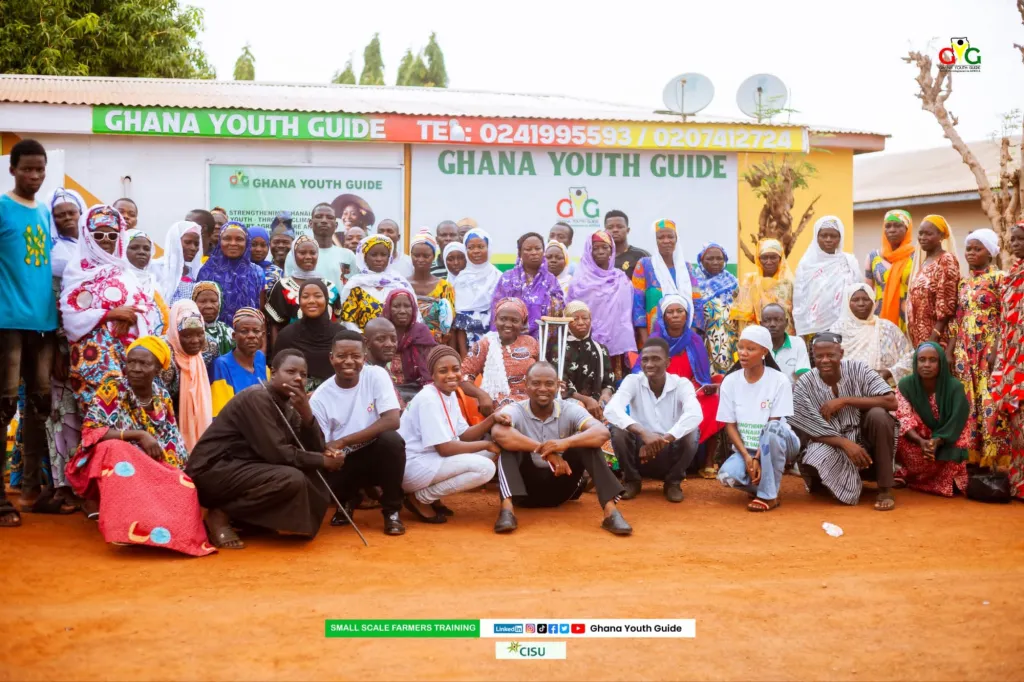
Knowledge and awareness about the impacts of climate change were also disseminated through a quarterly radio interactive program which was broadcasted in local languages. In the program project related information were discussed by the project staff, volunteers, agric extension officers and other stakeholders to share knowledge on topics related to climate change with the secondary target group.
The program reached approximately 20 thousand people in Tolon, Savelugu, and Tamale throughout the project implementation. 80% of the target group have gained new knowledge about climate change impacts and adaptation. A CSA training guide was developed and distributed to the 50 small-scale farmers, as well as to GYG project staff, board members and volunteers. The training guide was used as a base to deliver the CSA training to the beneficiaries. The training was structured in two days and brought together 50 small-scale farmers from Tolon and Savelugu districts to learn the theory and application of some CSA techniques and concepts.
The 50 participants (60% female) included 12 PWDs and were structured to be as accessible as possible given the limited funds. The involvement and inclusion in the training of the local stakeholders, such as traditional leaders, governmental duty bearers and representatives of the agricultural sector provided the small-scale farmers with knowledge on relevant programs as well as local resources available, and making farmland more easily attainable for female farmers. Project monitoring has shown that the most adopted techniques that the small-scale farmers learned during the training were low or no tillage to preserve the humidity and structure of the soil and multi cropping (soybeans, groundnut, okra) to create synergies between different crops and optimize the use of land and water.
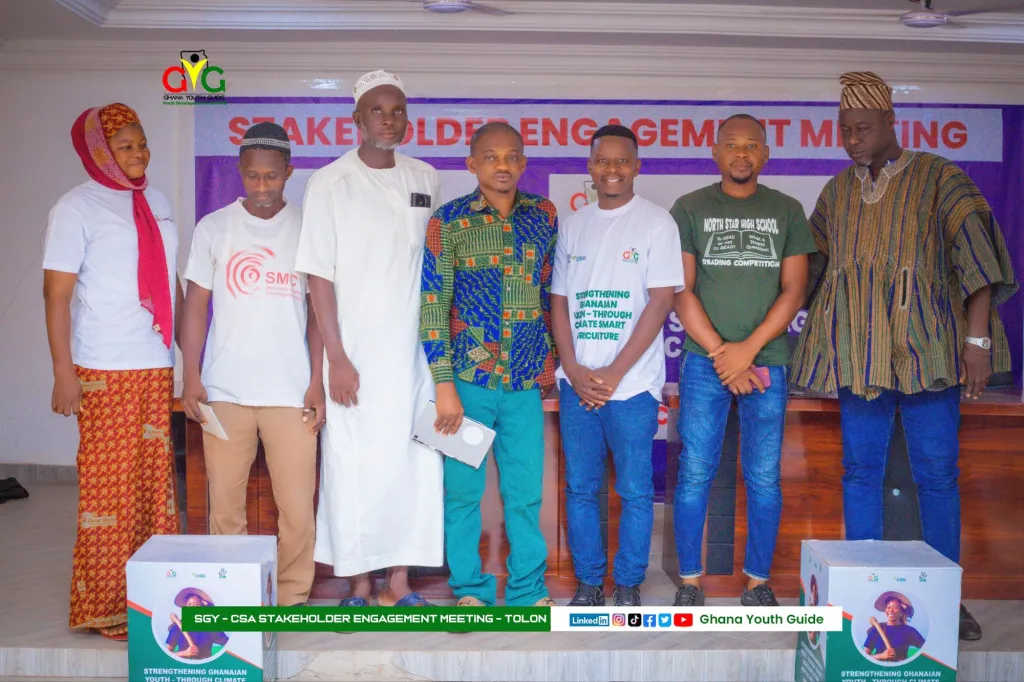
The role of GYG was strengthened by this project especially in relation to their increased knowledge about CSA and organic farming. This was made possible by the participation of the team and volunteers to the training and by their involvement on the field in the districts. Engaging volunteers from the communities who constituted the primary target group, also served to strengthen GYG’s position among the small-scale farmers, as they had access to continuous information about the challenges encountered and were able to gain the trust of the target group through their presence on the fields and through the stakeholder events.
Moreover, a capacity assessment of GYG was carried out, and DIB conducted organizational and financial management capacity building and project development workshops for GYG during the project implementation. Through the intervention, other avenues of collaboration have emerged. GYG and Copenhagen University College signed an agreement with three students from the university who interned at GYG during the implementation of the intervention. This has had mutual benefits for both the students and GYG as the students got real-life development work experience in Ghana while supporting GYG interventions.
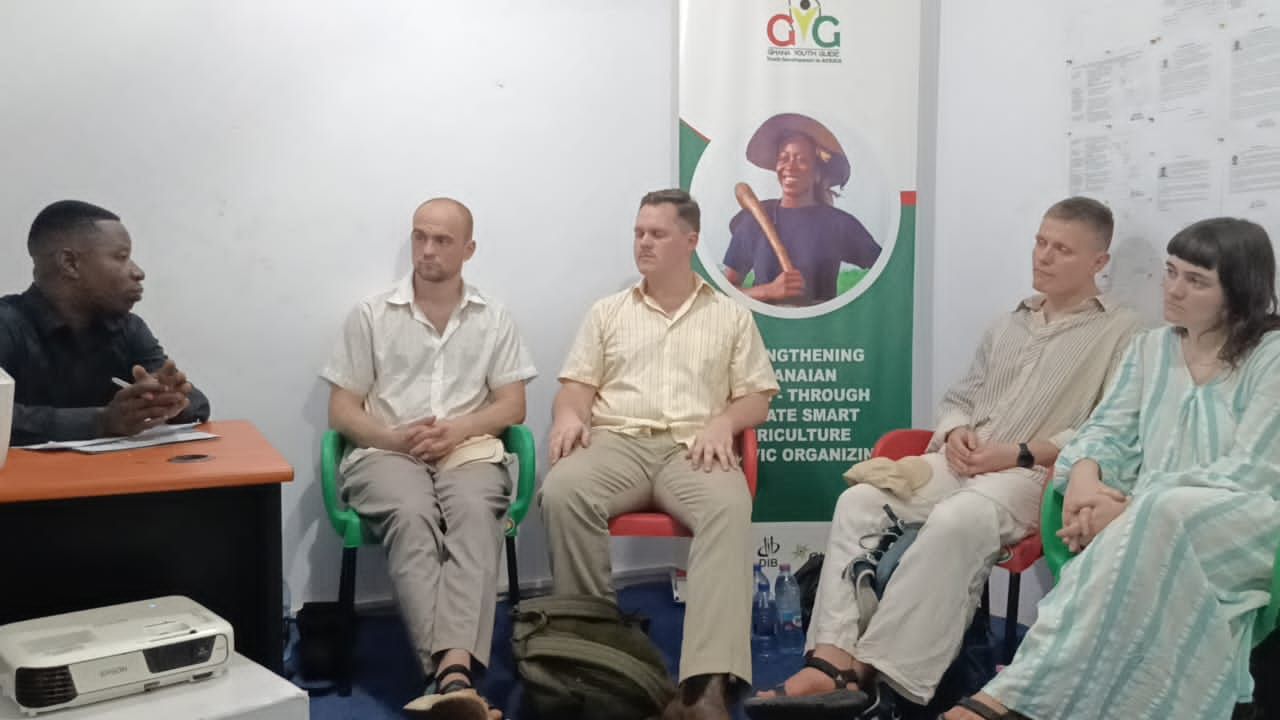
GYG-DIB partnership has been developed and strengthened. As a first-time collaboration between DIB and GYG this project served as a good test for developing and strengthening the partnership between the two organizations. The intervention’s development has benefitted from a combination of the experiences of both organizations. Implementing the pilot 9-month project has allowed the partners to get to know and understand each other through various interactions and joint workshops. The monitoring visit by a DIB representative was also the occasion to discuss the way forward and future collaborative efforts.
The main challenges encountered during the implementation phase concerned currency fluctuations (GH Cedis/USD) and limited time, increased number of participants, logistical issues for the training, and meteorological factors. The fluctuation of currency and limited time planned for carrying out the activities were mitigated as much as possible given the capacity of GYG: marginal funds were collected to cover the budget for some activities and the time used for the most relevant activities was optimized.
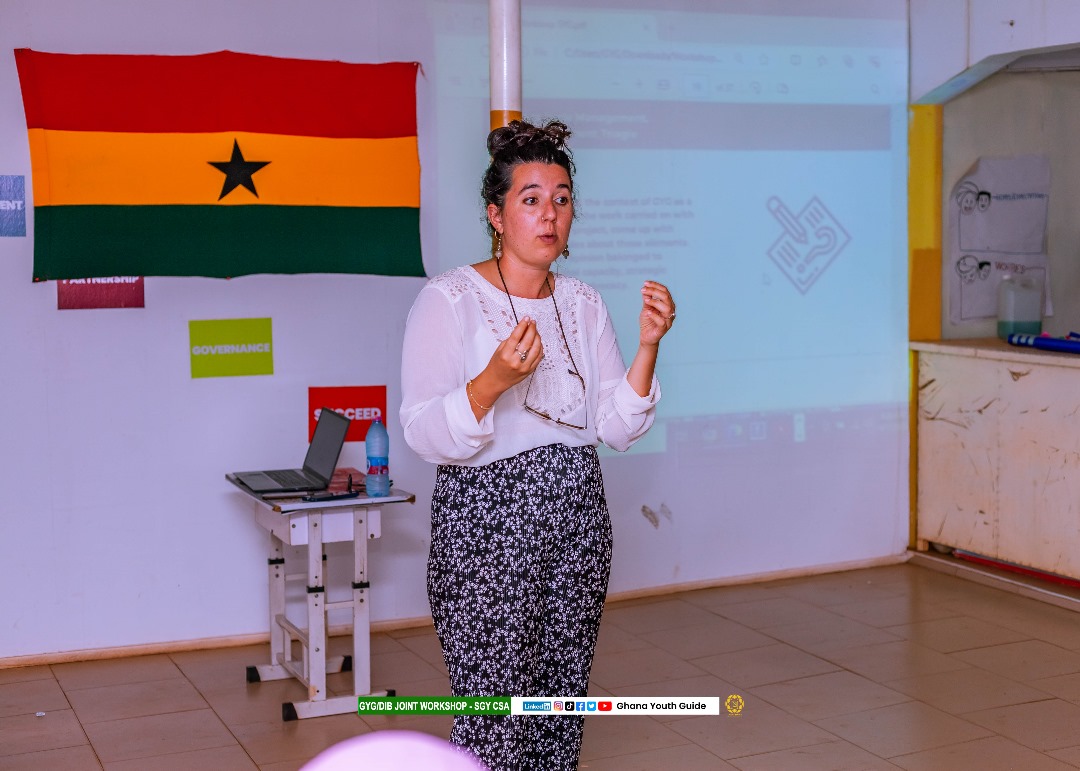
The increased number of participants was due to the number of helpers for PWDs and other community members that took part in the community meetings and were not budgeted for. The demise of one small-scale farmer before the training was addressed by asking his son to replace him: this decision was taken in consultation with DIB and the direct beneficiaries in the district. Tackling these challenges, GYG had to work with tight time and resources. For this reason, the content of the training was adapted to meet the timeline, prioritizing the participants’ interests (like groundnut and maize cultivation, organic manure etc.).
During the field work some volunteers and participants presented some minor injuries, hence a first-aid kit was purchased. Finally, adverse meteorological conditions, i.e. prolonged periods of drought and fewer rainy days in the rain season, hindered the application of some CSA techniques at the field level. Some farmers lamented that the crops stemming from the seeds planted through the project, died due to the lack of rain and water and for the hotter temperatures. This challenge was hard to mitigate, as erratic rainfall patterns and hotter temperatures are extremely detrimental for small-scale farmers who rely on rain-fed methods. Nevertheless, some of the techniques taught through the training and applied by the farmers proved to be successful in countering some effects of drought, like multi-cropping.
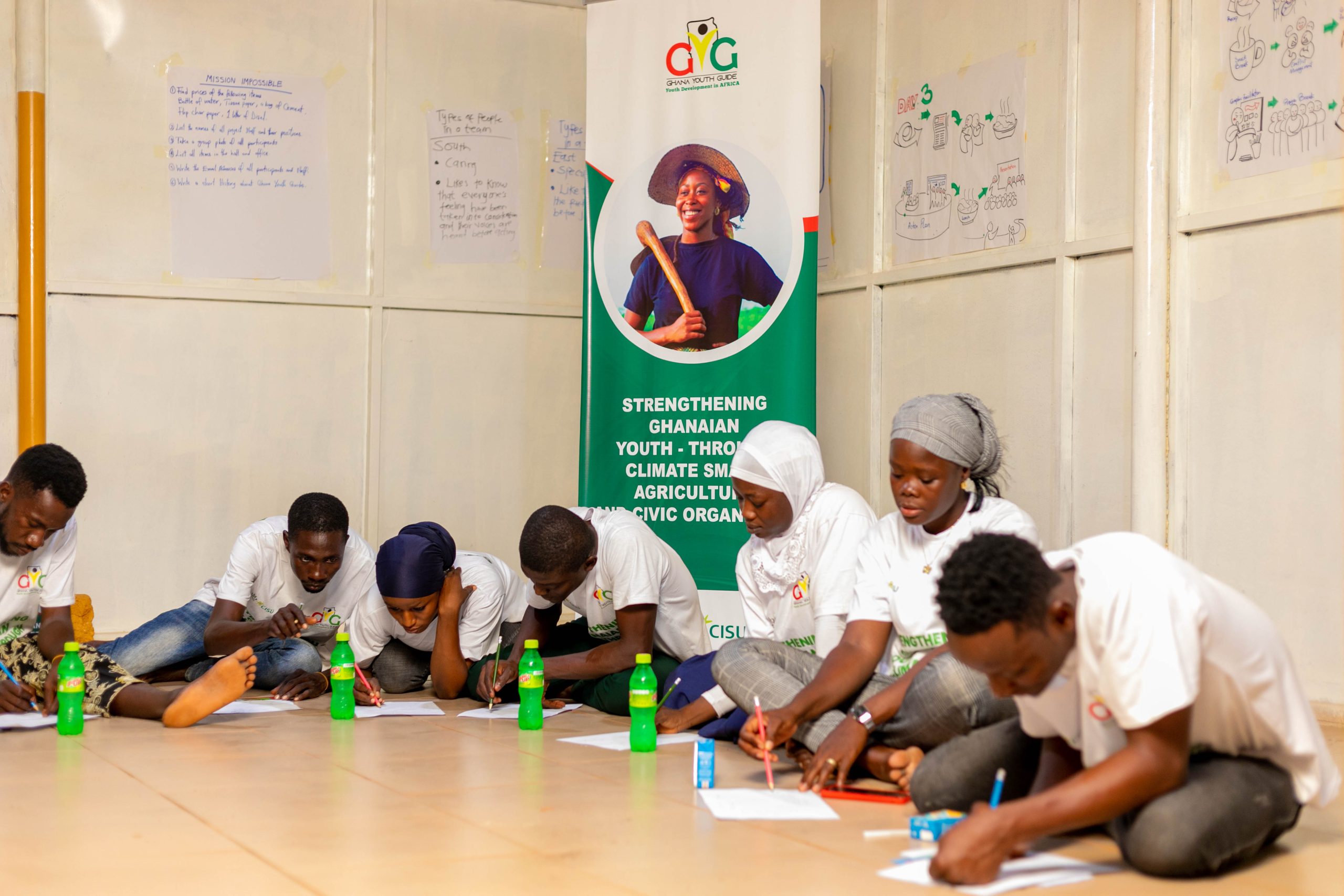
The whole primary target group was included throughout the implementation of this intervention. In particular small-scale farmers and local key stakeholders were consulted in relation to the training on CSA: they contributed highlighting the areas of highest interest, relevant crops, and how to complement traditional knowledge with new learnings. All the planned events (community entry and follow-up meetings) collected the feedback and inputs from small-scale farmers and local stakeholders, and the project was adjusted according to local suggestions and concerns.
The challenges presented by the small-scale farmers in relation to the application of CSA methodologies, were collected and included in tailored solutions for each farmer. The engagement meetings organized by GYG with small-scale farmers and relevant stakeholders were also the arena where these different target groups had the chance to advocate for their rights. Female farmers successfully advocated for accessing more lands and being able to generate income related to farming also during the dry season. The participation of other CSOs, clergy, and traditional leaders was witnessed in their contribution to shaping the spheres of interest for this intervention bringing to the table their knowledge and expertise of the local context.
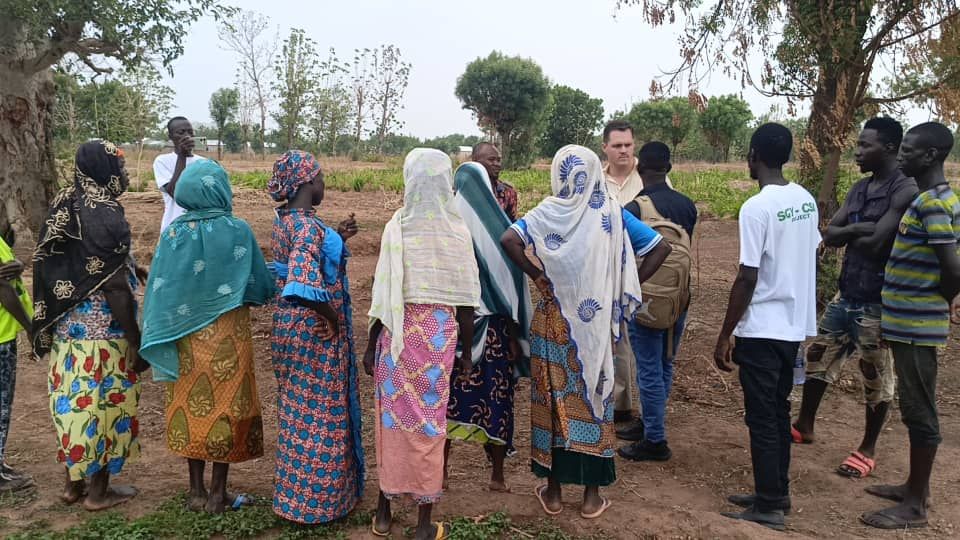
Their contribution related to including traditional knowledge and cultural norms to the planned activities and finding a way to include new learnings with their expertise. By participating in all activities GYG raised its capacity to lead youth climate advocacy and community mobilization at the local level. Their level of participation was considered very high due to their role as implementing partner but also part of the target group. The learnings and experience acquired were used by GYG in shaping this intervention to include the organization’s strengthened capacity and the feedback from the other target groups.
The idea to propose this intervention was initiated collaboratively by DIB and GYG. The intervention’s development has benefitted from a combination of the experiences of both organizations. GYG and DIB held meetings online (zoom, google meet) to discuss project related issues and to take decisions together. All decisions on the SGY/CSA project were jointly discussed and implemented.
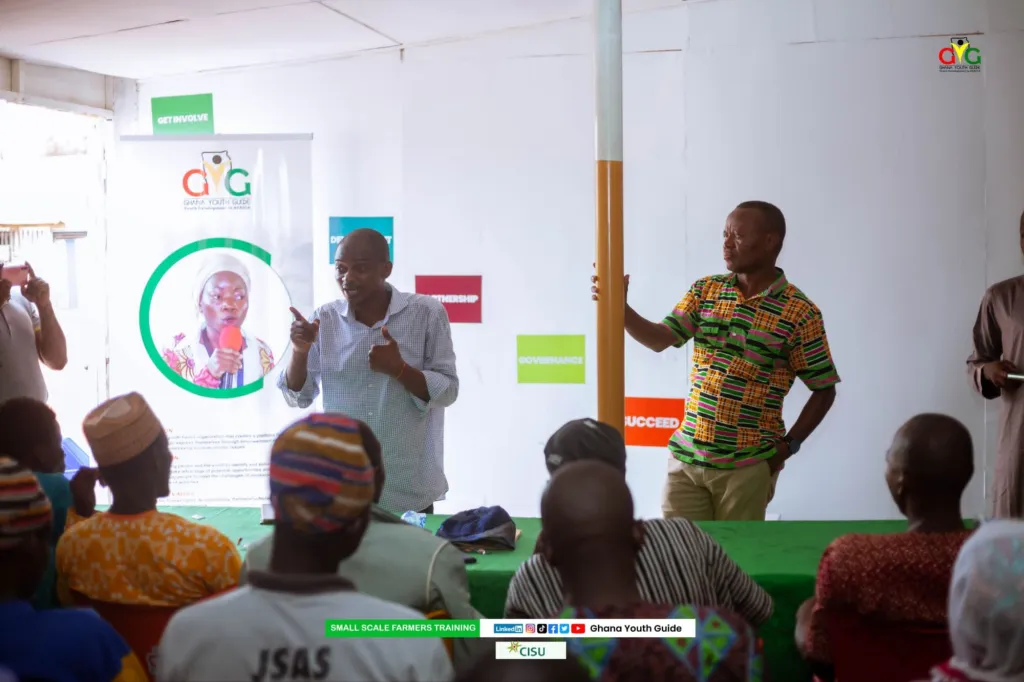
Building on the feedback collected from local communities and farmers throughout the project and during DIB’s monitoring visit, and the lessons learned session held by GYG, it is clear that this kind of intervention has raised significant interest locally. The impact on the beneficiaries and on the relevant stakeholders involved, was higher than expected considering the limited funds and time. Nevertheless, this process has also helped GYG identify those elements that have room for improvement and those factors that need to be highlighted more.
In particular, the marginalization of female farmers and PWDs highlighted the need to focus more on a gender-sensitive and anti discriminatory approach to agricultural training. The success of letting female farmers access male farmers’ fields during the dry season, showed the importance of involving local authorities and traditional leaders in community sensitization and advocacy. Mediating the formation of farmers support groups at the community level will also pave the way for farmers to access certified seedlings and to be registered to apply for Agric loans that will go a long way to support their farming activities to alleviate poverty.

Moreover, the tight time allocated for the training, showed that, should another occasion arise, the time for training should be extended to guarantee a more efficient learning process and a deeper understanding of the applicative side of CSA. The learnings from the training can also be intensified by increasing the presence of field officers with the small-scale farmers and organizing more engagement events at the community level. The marginalization of Persons With Disabilities (PWDs) and visible minorities (Fulanis) in agriculture in Northern Ghana is another challenge and if similar intervention will be implemented it should consider them to address the situation.
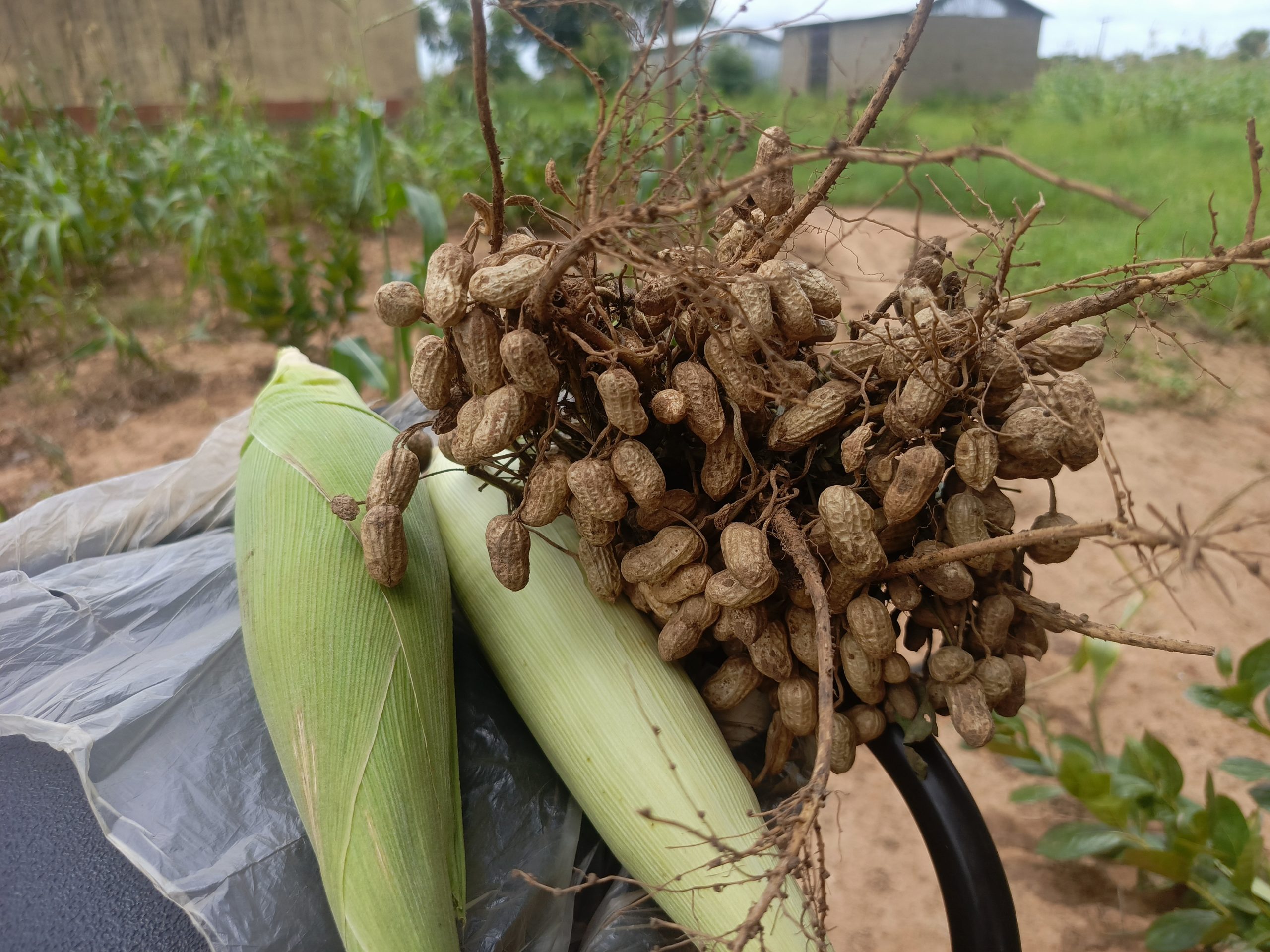
This intervention had planned the participation of 70 beneficiaries. Nevertheless, whether the training targeted the beneficiaries accounted for in the budget, the rest of the activities, and in particular the engagement events, witnessed the participation of approximately 120 people. Included in this number were traditional chiefs, local authorities, clergy and other CSOs representatives. One one side, this was challenging in relation to adapting the budget to this higher number of participants; on the other hand, this showed the high level of interest and willingness to participate that this project has generated at the local level.
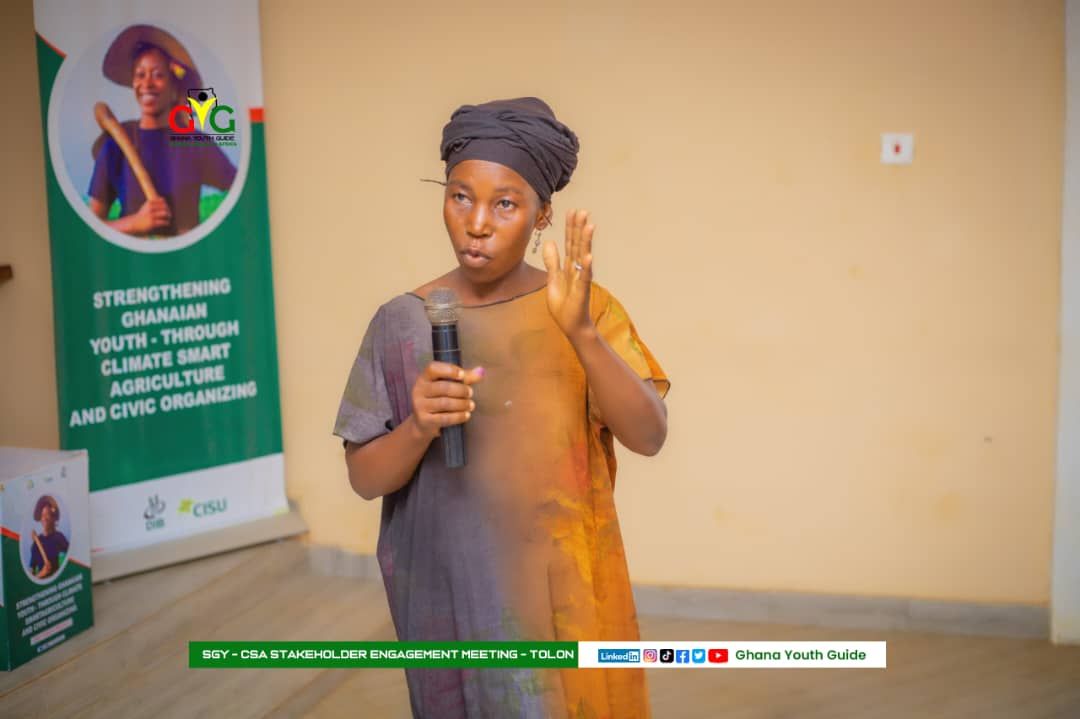
Given these positive elements, we believe that this project is only the beginning of GYG’s work with CSA and climate advocacy in Northern Ghana and that the success of this intervention can easily be amplified and strengthened through future interventions and collaborative efforts.
Kindly follow us via our social media handles @Ghana Youth Guide and www.ghanayouthguide.org for more update when it comes to youth development in Ghana.
GYG Holds Maiden Business and Innovation Conference in Tamale
GYG Opens Job Vacancies for Field Officers in Tolon and Savelugu Districts
N/R Prince Chentiwuni Lauds His Organization’s Works In 2024.
PWD’s call for more Donor Support for GYG Climate Smart Agriculture Project N/R
GYG Commenced Two days Small Scale Farmers Training in Tamale
GYG and DIB staff Visit Small Scale farmers at Golinga in Tolon District
Farmers lauds GYG for organizing stakeholders engagement meeting on Climate Smart Agriculture
